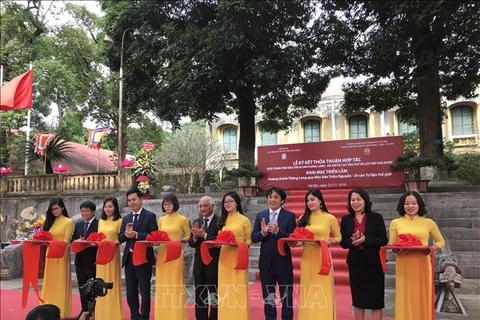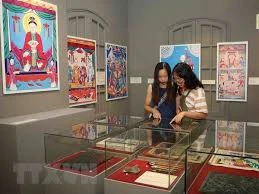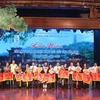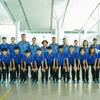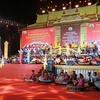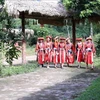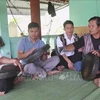Hanoi (VNA) - A workshop on the history of excavation of the Thang Long Imperial Citadel was held by the French Cultural Centre (L'espace) and the Vietnam Academy of Social Sciences (VASS)’s Institute of Archaeology in Hanoi on December 12.
The event was part of activities to celebrate the 45th anniversary of Vietnam-France diplomatic ties and 25 years since the formation of the French Academy of the Far East (EFEO) in Hanoi.
Scientists, experts and archaeologists at the event shared their stories related to archaeological excavation at the citadel.
Dr. Nguyen Gia Doi, Director of the Institute of Archaeology underlined the significance of the event which spotlights cooperation between Vietnamese and French archaeologists during the excavation of the the Imperial Citadel.
Many French research projects on cultural heritage preservation have been highly appreciated by Vietnamese researchers, Doi said, affirming that Thang Long Citadel is an invaluable cultural heritage of Vietnam.
Prof. Dr. Andrew Hardy, Chief Representative of the EFEO said the Thang Long Citadel is a relic complex associated with the history of Thang Long Imperial City, affirming this massive architecture structure has become the most important relic in the system of Vietnamese relics as it reflects many historical events.
Sharing the excavation process of the relic site, Associate Professor, Dr. Tong Trung Tin, who was in charge of the excavation project, said the excavation from 2002-2004 aimed to carry out a survey for the construction of the National Assembly (NA) House. The earliest remains discovered at the site quickly attracted the attention of domestic scientists and those from international organisations.
In December 2002, the excavation was made on a total area of 19,000 sq.m at the the centre of Ba Dinh political area. The largest archaeological excavation in Vietnam and in Southeast Asia revealed traces of the Thang Long Imperial Citadel during its 13-century history.
Unique architectural traces and millions of valuable artifacts reflect the history from Chinese domination (the 7th-9th century), throughout the dynasties of Ly, Tran, Le, Mac and Nguyen (1010-1945).
Tin stressed the need to build a plan to preserve the relic site while expanding the excavation.
On the occasion, a book on the excavation of the site published by the The Gioi (World) Publishing House and the Institute of Archeology was introduced to participants.-VNA
VNA



